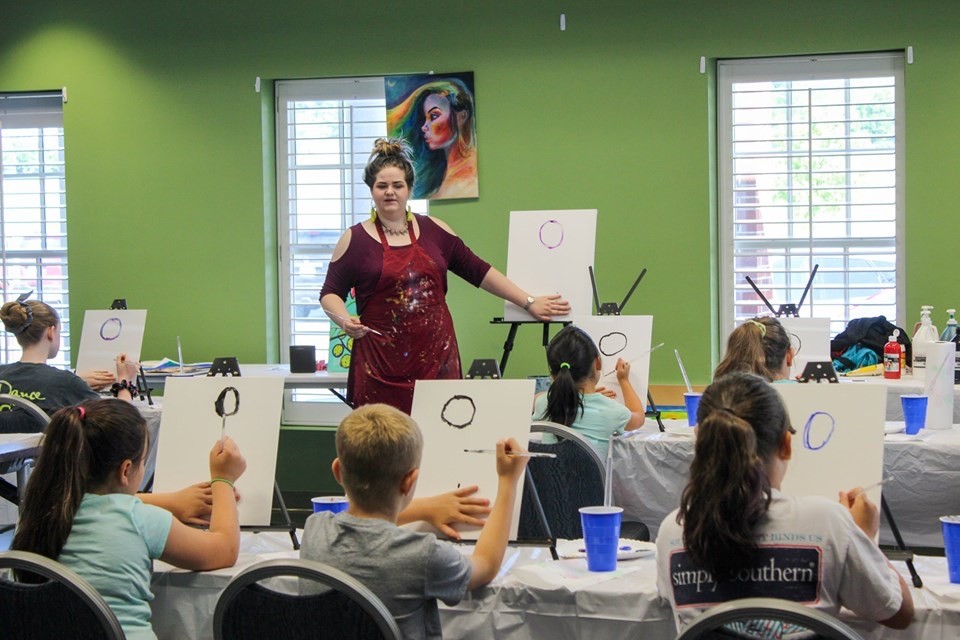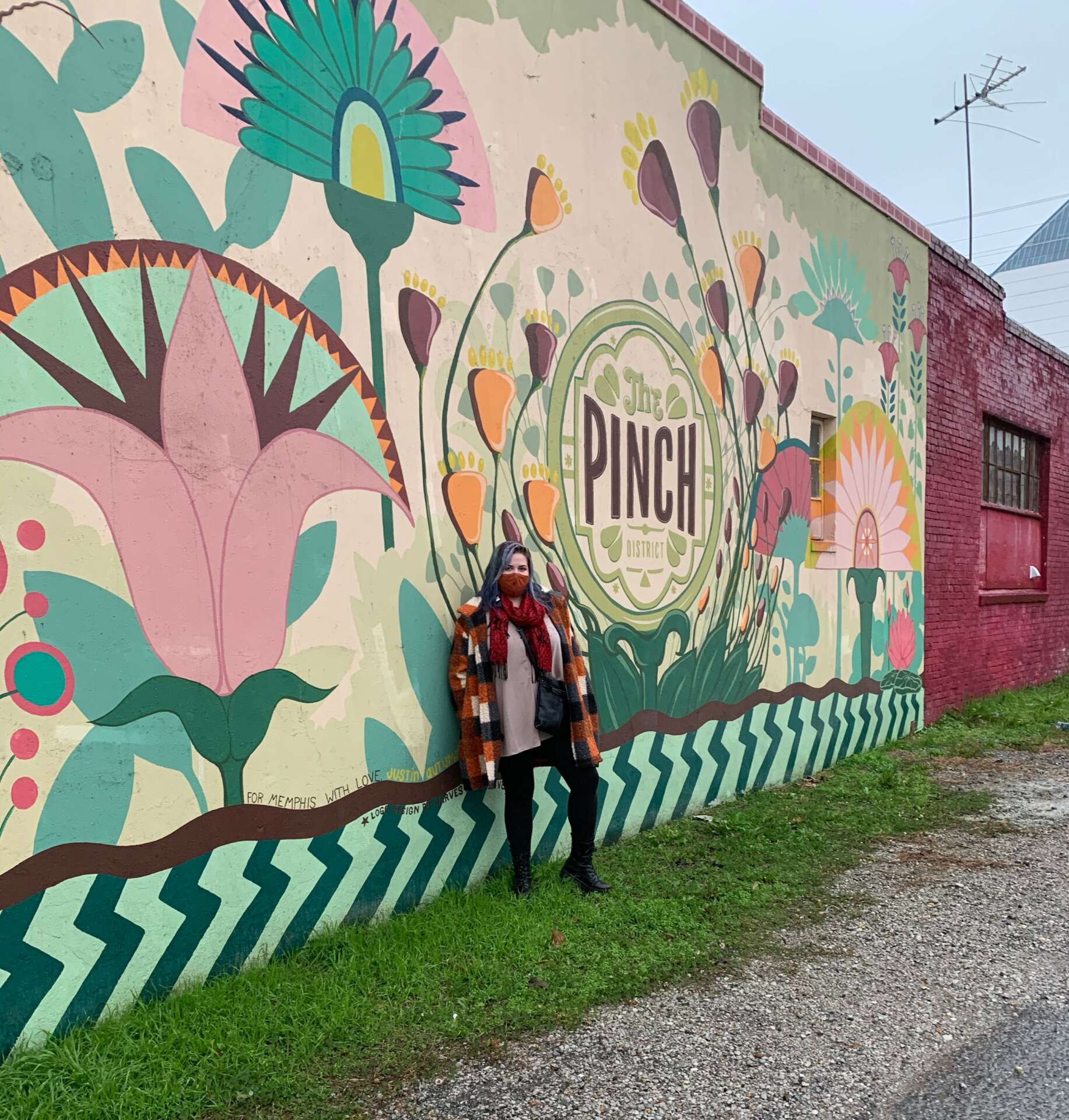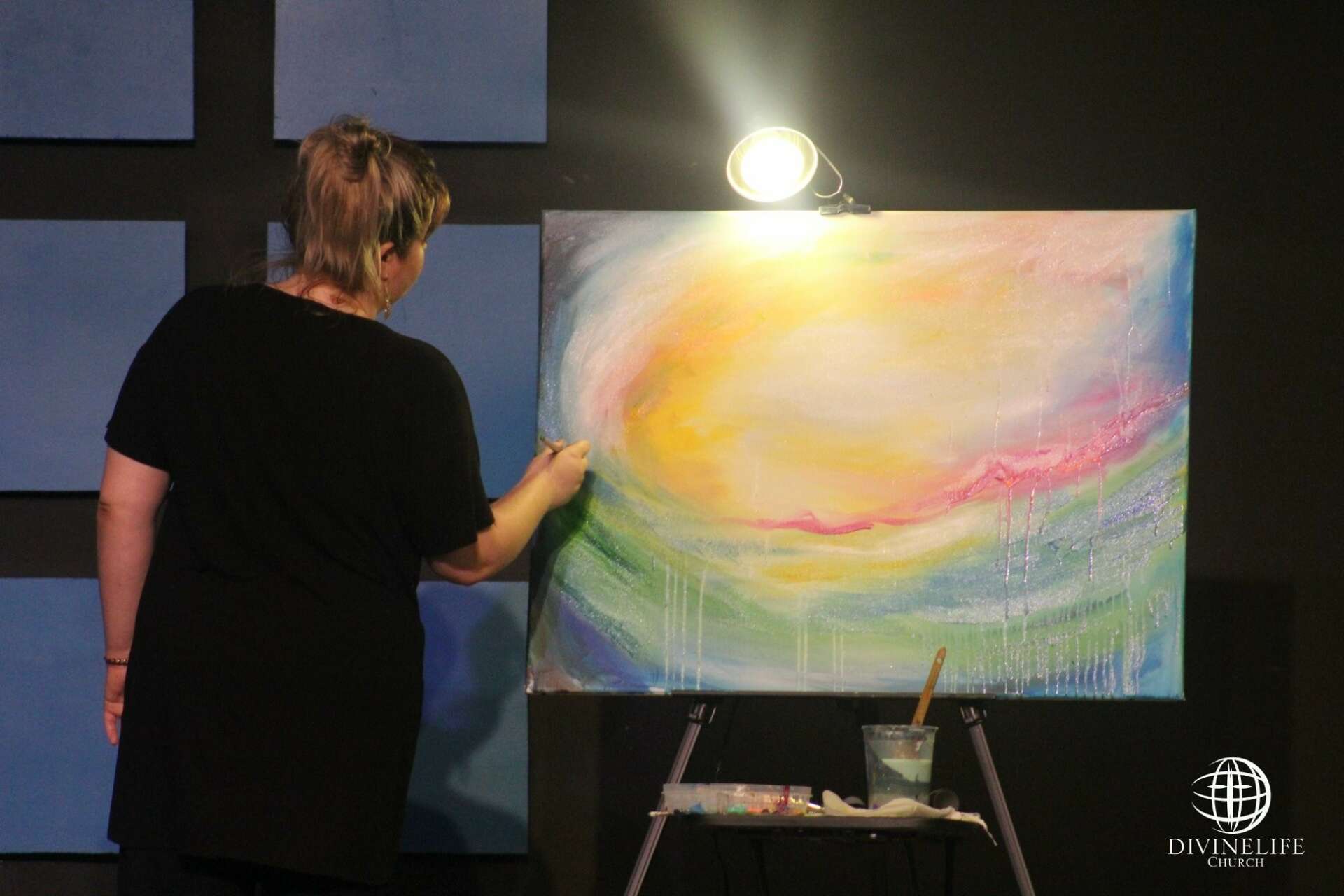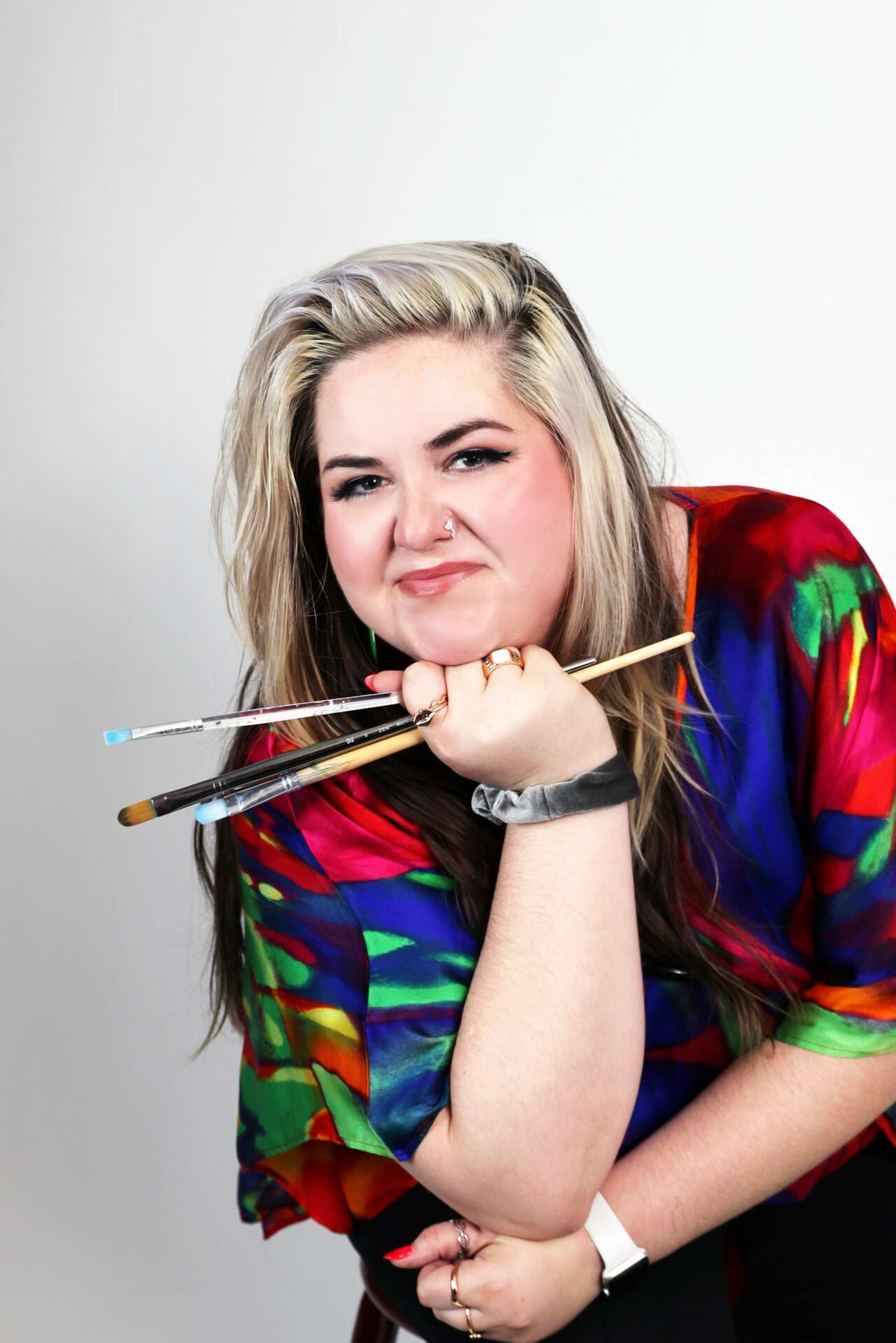We recently connected with Amy-Beth Rice and have shared our conversation below.
Amy-Beth, looking forward to hearing all of your stories today. We’d love to hear about the things you feel your parents did right and how those things have impacted your career and life.
I was really fortunate in that both my parents are creatives in different ways, so there was more understanding of why I wanted to make the life and career choices that I did. My mother had her own graphic design business and my father is a professional drummer. They have both earned their living solely from their creative skill for periods in their lives, but they’ve also had other careers. My dad has also been an electrician for most of his life and my mom is currently a lifestyle coordinator for an assisted living facility. While there was a financial concern when I wanted to go to art school, there was an understanding, from an early age, that making art wasn’t just an interest but had become an aspect of my identity. I had a lot of difficulty when I was a child in school and socially and I think they just wanted me to feel celebrated in what I excelled in. They were supportive of whoever we were and allowed us to be creative. This went further than just making sure I had a sketchbook and some good pencils, it was more that they accepted our “weirdness” as individuals whether that was my thrifted clothing experiments or letting my brother build an 8′ subwoofer by hand (though Mom made him cut it down to 5′, I don’t think they realized how much it would rattle the house). There was still strictness in a lot of areas, we grew up in church, but for the small-town Midwest context we were in, they let us be more ourselves than I think a lot of parents did and it helped me see beyond what was in front of me to what I could be in the future. For me it was my parents and a few of my teachers who gave me this space, but I’ve also seen young people thrive in the same way if it’s an auntie or a community of peers where they feel supported.


Great, appreciate you sharing that with us. Before we ask you to share more of your insights, can you take a moment to introduce yourself and how you got to where you are today to our readers.
I’m an artist, I mostly think of myself as a painter. I’m also an arts educator and mentor, I teach high school art in Memphis and work for an arts fellowship program, Contemporary Arts Memphis, mentoring young artists. I left the classroom and was a full-time artist in my 20s, but I missed educating and found myself building a roster of private students, teaching community ed classes at Memphis College of Art, and teaching at one of those fun paint-and-sip places, too. I don’t think I’ll ever only occupy one of those two spaces, I’m too passionate about both.
I started making art as a child and wanted to be an artist. I had great middle school art teachers and my high school art teacher, Aaron Roten, really helped me develop my ability and build a portfolio that helped me get a scholarship to art school. Although I designed and taught an after-school program with my high school friend in an elementary school, I had never planned to go become a teacher, but I started to become increasingly interested in education as I saw how life-changing it could be and how ideas can shift the trajectory of families, cultures, and even whole countries over time. I’ve gotten to travel and do workshops and have shows at libraries, community centers, universities, and assisted living facilities in different states; which has been fulfilling.
As an artist, I mostly do portraiture, in both commissions and in my personal work. I like for my paintings to depict people in a recognizable way, but to also use the other elements of the paint like color and texture to communicate things about the subject to the viewer.
Outside of portraiture, my favorite thing to do is live paint. While this is something I offer for weddings and events. Its origin in my life is connected to my faith. I was trained in 2016 by artist Amy Rylander in how to minister through painting and it’s something I’ve done in faith-based events and services, as well.

Do you think there is something that non-creatives might struggle to understand about your journey as a creative? Maybe you can shed some light?
This isn’t always the case, as there’s a lot of variety among creatives, but something I felt growing up and have noticed as a teacher is that being a creative individual can sometimes coincide with being a bit different. That can look like being a social misfit, being neurodivergent, or just struggling in school. If this is you or your child, niece, etc., continue encouraging them in their uniqueness and celebrate what they’re good at while also helping them learn how to navigate how to be inside of systems and environments that maybe weren’t initially designed for them in mind or don’t bring out the aspects of them that are special.

What can society do to ensure an environment that’s helpful to artists and creatives?
Investing in arts education and making it accessible and standard for everyone is foundational. I think any changes you want to see in society should be reflected in the way we educate our youth, so while I could address some of the societal issues surrounding the arts, I believe art education is one of the main roots. There are countless benefits of an arts education on an individual level, but I don’t know that we often think about how it impacts the future and health of our society as a whole. It is foundational for human and societal development but is often seen as an add-on; a fun time for students and a break for other teachers. In my public school teaching experience, I am in a city that has a solid art education program compared to a lot of cities and places in that there has been a push to have art classes in every school and there is an instructional facilitator who fervently advocates for teachers and the arts, however, the arts are still excluded from the larger vision for public education and districts as a whole. If more adults had an arts education and more people with a fine arts background were on the board or in positions of authority I think there would be a more well-rounded mindset, which would ultimately build a healthier society and culture for artists and creatives.


Contact Info:
- Instagram: amybethrice
- Online Shop: society6.com/amybethrice
Image Credits
Divine Life Church Media Ministry


